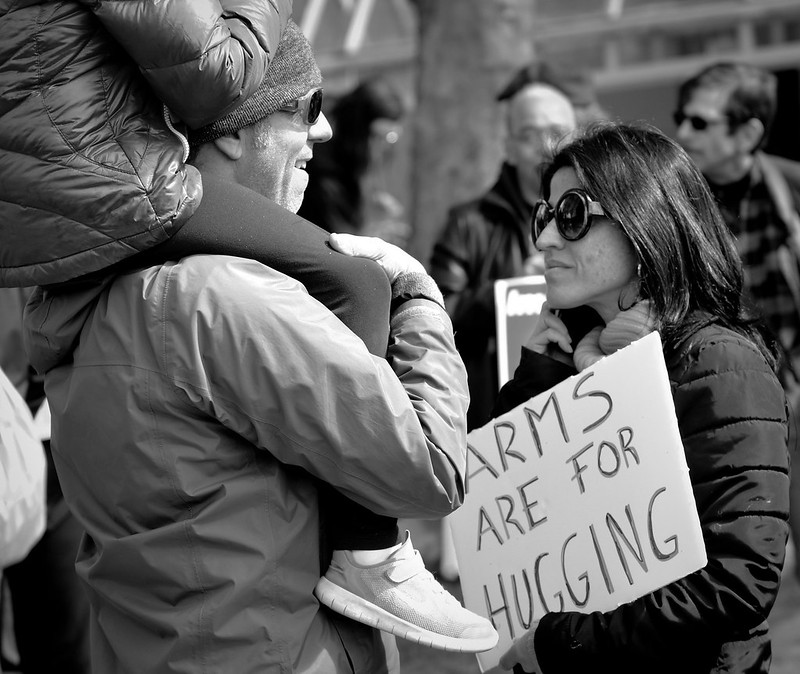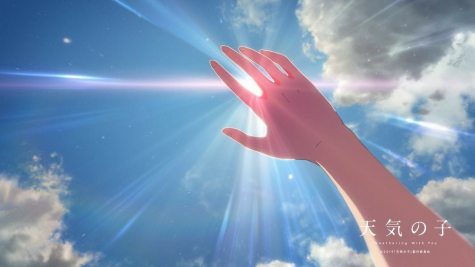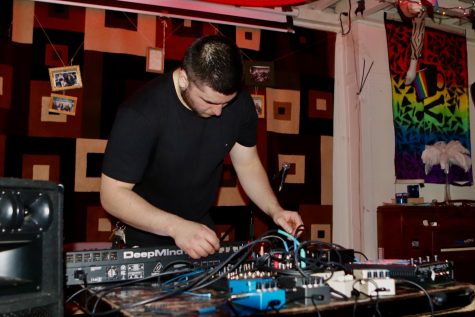Parkland Suicides Stress Care for Survivors

Parkland Suicides Stress Care for Survivors
Organizations like “March for Our Lives” protest for gun control as well as increased support for survivors of school shootings. (Courtesy of Flickr)
Gary Wells
Gary Wells
Organizations like “March for Our Lives” protest for gun control as well as increased support for survivors of school shootings. (Courtesy of Flickr)
April 10, 2019
Hang on for a minute...we're trying to find some more stories you might like.
Email This Story
By Kelly Christ
Many Americans, especially high school students, remember exactly what they were doing on Feb. 14, 2018, when the news of the devastating school shooting in Parkland, Florida occurred. Fourteen students and three employees at Marjory Stoneman Douglas High School (MSD) in south Florida tragically passed away in the massacre.
Now, over a year later, devastation has struck the community yet again as two students, both of whom survived the shooting in 2018, have committed suicide.
Sidney Aiello and Calvin Desir, aged 19 and 16 respectively, took their own lives within a week of one another. Aiello lost her best friend, Meadow Pollock, in the 2018 shooting, and had been struggling with mental health issues ever since. She had recently been diagnosed with post-traumatic stress disorder (PTSD), a psychiatric disorder characterized by intrusive thoughts, distressing flashbacks and negative thoughts and feelings following the traumatic event.
Aiello had been particularly struggling with survivor’s guilt. Although first considered a separate diagnosis, survivor’s guilt is when an individual feels they do not deserve to survive a tragedy that others did not. It is now defined as a symptom of PTSD. The condition can lead to devastating effects as it did with Aiello.
PTSD is an incredibly difficult mental health condition. It involves a repeated reliving of an event that was beyond horrific to experience. PTSD was added to the third edition of the Diagnostic and Statistical Manual of Mental Disorders (DSM-III) in 1980.
Prior to its inclusion, the condition was referred to as “shell shock” or “war neurosis,” as it was typically associated to the impact of war on soldiers. But as seen in the case of the Parkland students, PTSD is not limited to war.
The American Psychiatric Association says it can arise following “a natural disaster, a serious accident, a terrorist act, war/combat, rape or other violent personal assault.” In its early diagnoses, it was assumed that an individual had to have directly experienced a traumatic event first-hand in order to suffer from PTSD. However, it has now been noted that it can result from exposure to details or information about trauma cases as well.
In the initial aftermath of an event like Parkland, the response is centered on the victims who were either killed or physically injured. Unfortunately, over time, the well-being of those who survived the attack, frequently suffering from PTSD and other mental health conditions, worsens and we often forget to pay attention.
These suicides show that there is an imperative to provide long-term mental health assistance to all survivors of devastating events. As we see here, the anniversary of the event can be a distressing trigger for those survivors.
Thankfully, the city of Parkland, Florida has continued to take action in the face of tragedy. Many of the survivors, including Emma González and Sarah Chadwick, organized a massive demonstration, March for Our Lives, on March 24 of last year to advocate for improved gun control. The organization was an outstanding act of perseverance and courage in the aftermath of the event.
As I discussed in a previous article, young people have shown increased anxiety levels compared to their parents’ generation, and the prevalence of gun violence in recent years has played a significant role.
Tragically, the deaths of these Marjory Stoneman Douglas students have shown the damaging consequences.
A combination of survivor’s guilt and other symptoms of PTSD, as well as the rampant occurrence of gun violence in the United States, has led to the loss of young lives full of brilliant potential.
In response to Aiello and Desir’s passings, several students at Marjory Stoneman Douglas High School planned a walkout. In addition, schools in Broward County, Florida have made tremendous efforts to provide further resources for their students. This has included 23 additional trauma trained mental health professionals on site at MSD along with suicide prevention staff training, off-site resources and professional consultations available this week, according to reporter Saira Anwer.
Unfortunately, Parkland, Florida has become a model for the response to violent tragedies that have become far too common in our country. However, the actions by both the young students and school officials have been admirable.
While the fight for improved gun control legislation and other measures to directly inhibit gun violence continues, mental health initiatives can make a significant difference in assisting both students who have witnessed such horrific violence, as well as those who fear they too will be victims.
We must never lose hope that the situation can improve and that our futures will be bright.
If you are struggling with mental health issues, do not hesitate to contact the following resources:
Fordham University Counseling and Psychological Services (RH): 718-817-3725
Suicide Prevention Lifeline: 1-800-273-8255
Crisis Textline: text START to 741-741











If you want a picture to show with your comment, go get a gravatar.